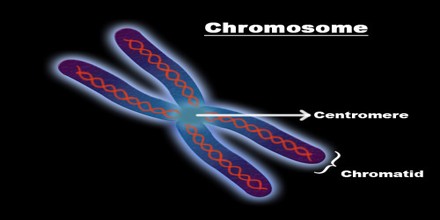Chromosome: The chromatin fibre which is formed in coiled form in coiled form in the nucleoplasm and breaks down into some definite number of piece, arc called chromosomes.
The self-reproducing thread like structure which is made of nucleic acid and protein from nuclear reticulum and carries the hereditary characteristics to the successive generations, playing a vital role in mutation, variation and evolution is known as chromosome.
Types of chromosomes:
Chromosomes are of two types, such as- 1) Autosome and 2) Sex chromosome
Autosome: The type of chromosome which determines the characteristics of any organism is called autosome. Example: 22 pairs of autosomes are present in each body cell of humans.
Set chromosome: All other chromosomes except the autosomes are called sex chromosomes. Therefore, the sex character regulating chromosomes of a cell is called sex chromosome, such as a human cell contains one pair of sex chromosomes. The sex chromosomes are usually marked by “X” and “Y”.













